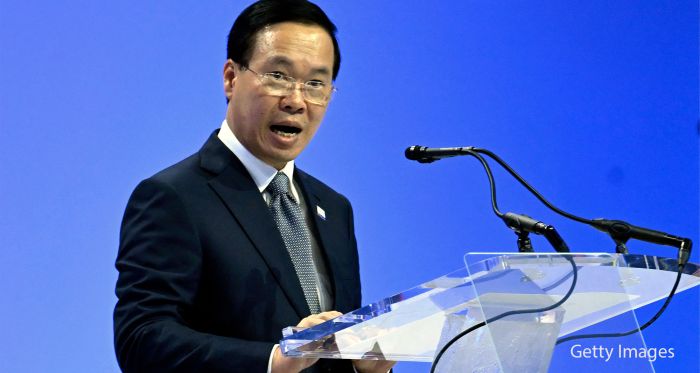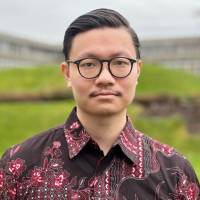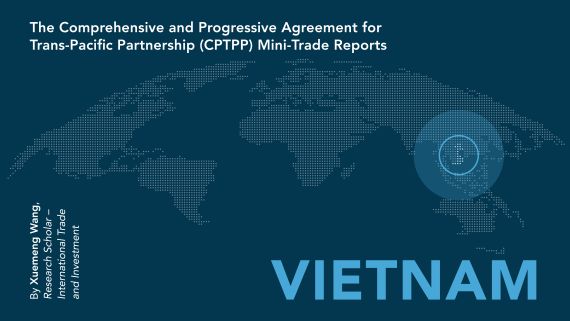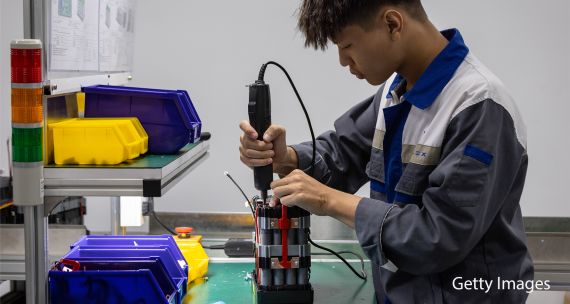On March 20, the Central Committee of the Communist Party of Vietnam (CPV) announced the abrupt resignation of President Vo Van Thuong a little over a year after he assumed the role. Thuong’s departure is the second resignation of a president in less than two years; his predecessor, Nguyen Xuan Phuc, was forced to resign in January 2023.
The CPV has been tight-lipped on the circumstances surrounding Thuong’s departure, saying only that he had opposed Party principles and tainted the Party’s reputation. Many observers believe that Thuong, like his predecessor, has been implicated in a corruption scandal, possibly related to his role as provincial secretary of Quang Ngai in central Vietnam from 2011 to 2013. Thuong was recently accused of looking the other way while a local real estate company paid bribes to provincial officials.
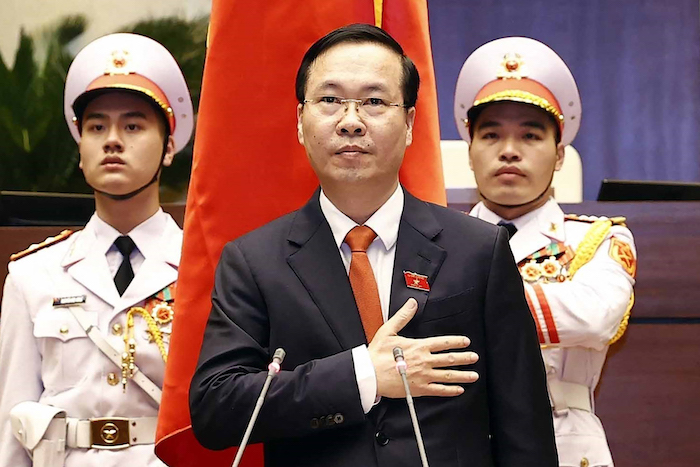
As head of state, the president’s duties include building diplomatic ties, advocating for the removal of key officials in the event of corruption charges, chairing the National Defence and Security Council during a state of emergency or war, and other largely ceremonial roles. As such, Thuong’s removal will likely not significantly impact the country’s day-to-day operations, but it has signalled a certain level of political instability and rattled some foreign investors.
Vice President Vo Thi Anh Xuan, who temporarily assumed the role during the ousting of former president Phuc in 2023, has been appointed interim president, with a permanent replacement expected soon. Two likely candidates include Minister of Public Security To Lam and Standing Member of the CPV Secretariat Truong Thi Mai. Both have shown interest in running for the position of CPV General Secretary in 2026, and serving as president would be useful in building their respective support bases.
What does Thuong’s ouster say about Vietnam’s anti-corruption campaign?
Thuong appears to be the latest high-profile target of the “Blazing Furnace” anti-corruption campaign spearheaded since 2016 by CPV General Secretary Nguyen Phu Trong in an attempt to secure his own legitimacy and public support. The campaign has ensnared about 200,000 Party members, including several high-ranking government officials. In addition to the two former presidents, two deputy prime ministers were removed on January 4 for their alleged involvement in corruption during the COVID-19 pandemic.
Some observers have suggested the resignation of Thuong as the work of the aforementioned Minister of Public Security To Lam, possibly as a means of removing an adversary in the run-up to the CPV National Congress in 2026. General Secretary Trong, who is 79 years old and reportedly in ill health, has remained silent on his succession plans, sowing seeds of political uncertainty regarding the CPV’s future leadership. Thuong’s removal is being interpreted by some as a sign of the continued infighting within the leadership of the CPV, with Trong seen as being politically weakened, as Thuong was his close ally and protege.
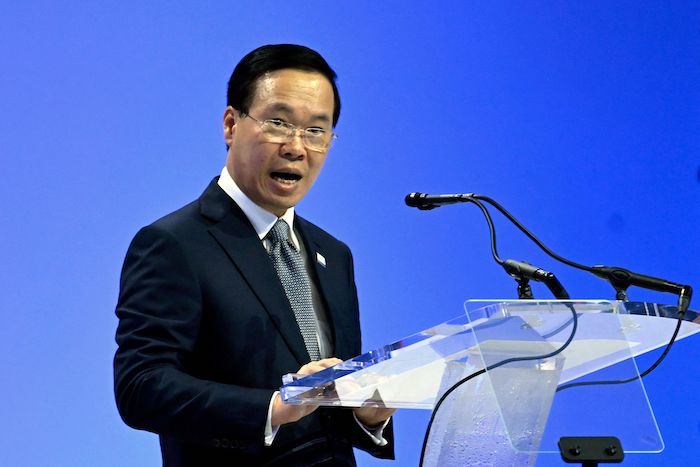
The anti-graft campaign, which has intensified in the past couple of years, has been carried out against the backdrop of heightened public discontent over the lack of accountability and transparency among Vietnam’s leaders. The recent increase in environment-related protests exemplifies this simmering discontent, reflecting public frustration over the CPV’s inability to regulate harmful business practices and respond effectively to ecological disasters. The summary ousting of corrupt government officials may be an attempt by the CPV to restore the public’s trust in the nation’s leaders.
Will increased political uncertainty effect Vietnam’s emergence as a global manufacturing hub?
Vietnam is emerging as a leading country in which to invest due to its generally stable political climate as a one-party state and a government that actively engages in developing regulations that facilitate foreign investment. The country has become a major manufacturing hub for various international conglomerates, including Apple and Samsung Electronics. Its status is expected to expand as state and non-state investors seek to diversify their supply chains and reduce their dependence on China.
However, the resignation of yet another high-ranking official has stoked concerns among foreign investors. Days before the official announcement – presumably, when news was circulating that a political shake-up was afoot – around 1.74 billion stocks on the Ho Chi Minh City Stock Exchange were dumped, indicating general uncertainty among shareholders over the sudden decline in share values.
What does Thuong’s resignation mean for Canadian stakeholders?
Vietnam is identified in Canada’s Indo-Pacific Strategy as a country of high importance. It is Canada’s largest trading partner in Southeast Asia; in 2022, Canada-Vietnam bilateral trade amounted to C$13.8 billion, an increase from C$8.9 billion just two years earlier. Most of the traded goods include agriculture and agri-food, communication technologies, and renewables.
In February 2024, Export Development Canada (EDC) announced plans to open an innovation office in Ho Chi Minh City by the end of 2024, which would include an investment of C$2.7billion. Furthermore, a Team Canada Trade Mission to Vietnam went ahead as planned between March 24-29. Bilateral trade and investment between Canada and Vietnam are also expected to deepen through the Comprehensive and Progressive Agreement for Trans-Pacific Partnership (CPTPP).
Despite the second ousting of a Vietnamese president within a year, some international analysts remain confident that, overall, Vietnam’s political system remains stable, and investors should not expect any major deviations in policy or governance. However, other observers suggest that investors unsettled by sudden changes may decide to temporarily halt investments as they wait and watch for what comes next.
Will Vietnam’s foreign relations stay the course?
President Vo Van Thuong’s resignation is unlikely to lead to any major foreign policy deviations. Foreign policy observers believe that Vietnam’s “bamboo diplomacy” – the policy of bending to balance close relations with important allies, including the U.S. and China – will not change. Relations with the other members of the Association of Southeast Asian Nations are also unlikely to be impacted.
